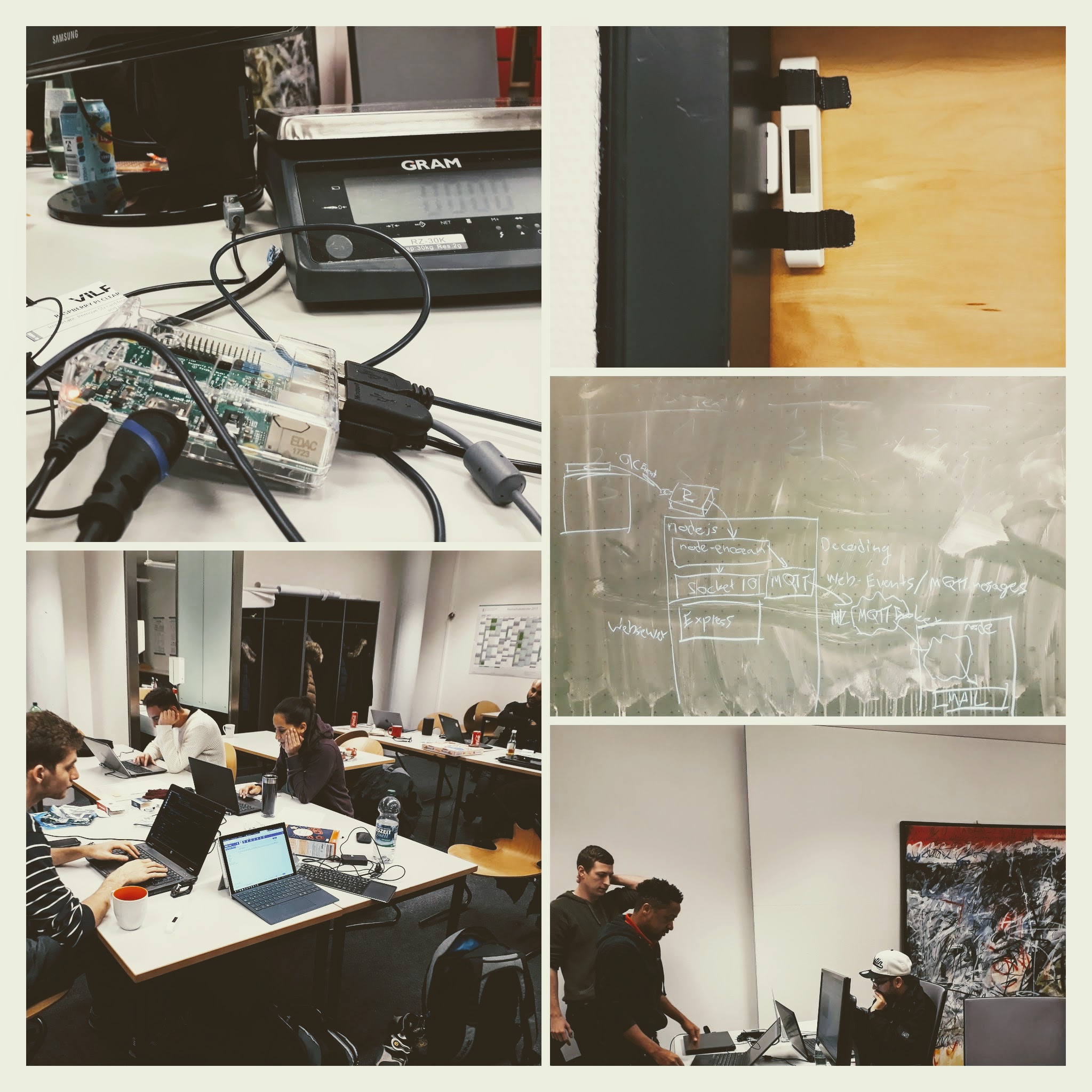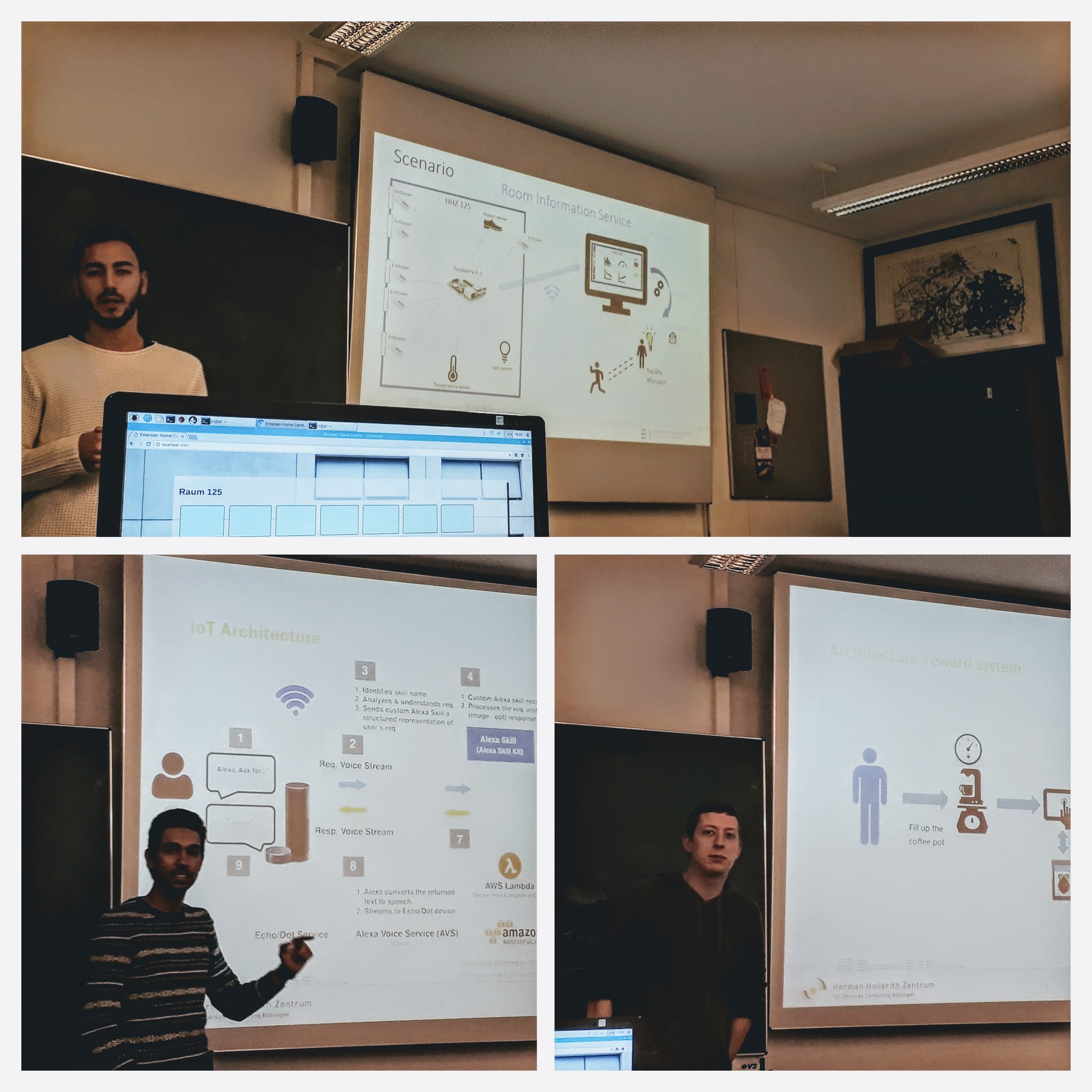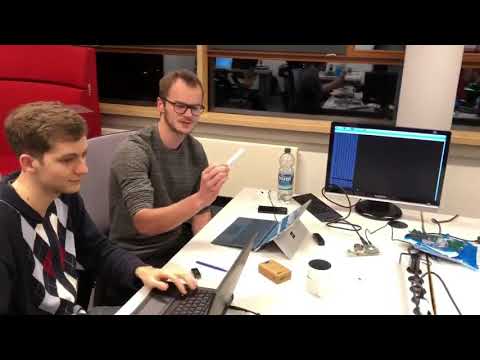In this winter term (Dec 11 and Dec 12, 2017) we conducted an IoT Hackathon as part of the IT Masters program Services Computing (SCM). During these short and very intense projects, students proof their understanding of core concepts from my IoT lecture. Check out this short video snippet capturing the hackathon.
IoT Hackathon Concept
In my IoT lecture I teach the concepts of embedded smart object computers as enabling technology for invisible IoT services. Within a sensor-instrumented environment these services naturally assist inhabitants in various activities. During a two-day hackathon students develop such IoT services and embed prototypes in the lecture rooms. Each student group documents its activities in a report publicly available on a github code repository. The final report is graded according previously known criteria displaying how well students have understood the concepts from the lecture.

IoT Hackathon Projects
Three groups, each 3 to 4 students, worked on their projects. Their application domain was the Smart Environment at the HHZ. This living lab operates 24/7 and assists students and lecturers during lecture days at the HHZ. The following projects have been implemented:
- Alexa coffee machine: The coffee machine represents a spot for spontaneous meetings to talk about the latest technological trends, but also a place for recreation and relaxation. Alexa coffee machine embeds an IoT service seamlessly supporting various activities at this very dynamical spot.
- Room Information Service: The room reminds you to close the door, to protect the gadgets and personal belongings in the room. Using information from the lecture calendar, it supports the janitor to prepare the room before and after each lecture.
- Coffee machine rewarding system: The coffee machine rewards students when brewing coffee. The embedded invisible IoT service encourages students to make coffee available at all times using a competition like approach. Who will be the next coffee master?
Finally, at the end of the two day project work students presented their concepts and prototypes. A short prototyp demonstration concluded each presentation.

Further Ressources
Hackathon projects’ code and reports are publicly available on github.
